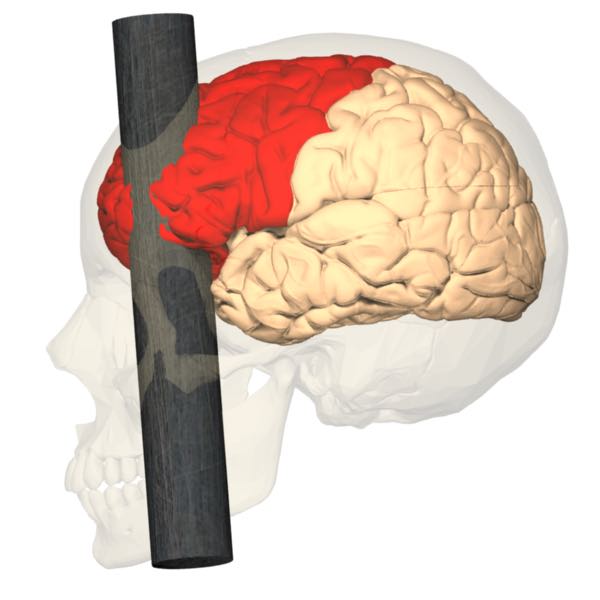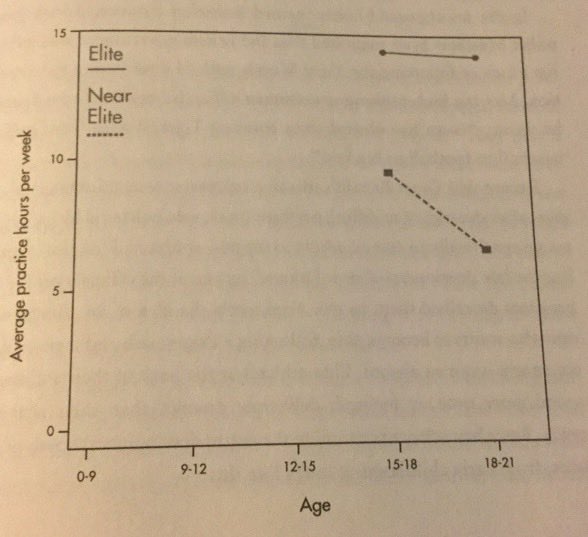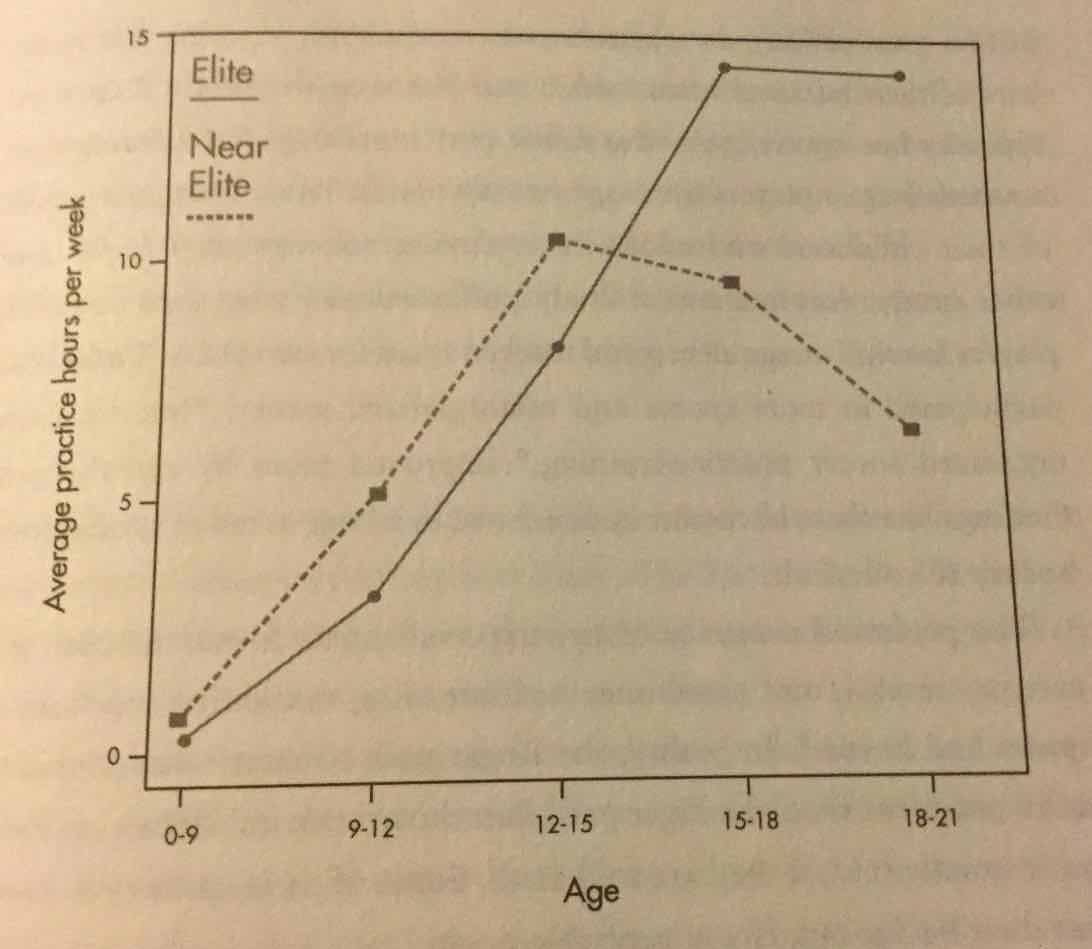How To Stop Checking Your Phone: 4 Secrets From Research
You do not have a short attention span.
Have you had multiple car crashes this week because you can’t pay attention to the road?See? You can pay attention when you “have to”. That’s not a short attention span. This means we lack attentional control, the difference between what we say we want to focus on and what we actually focus on.
This thing you call “your life” is made of memories. And your memories are made up of only the things you paid attention to. Exactly 2.32 bazillion things are happening in the world right now but all that exists for you and all that will ever exist is what you paid attention to. Attention determines your life and your happiness.
We think so much about the events in life and so little about attention, yet we all know that we can be experiencing something objectively great but not appreciate it because our attention is elsewhere, feeling we don’t deserve this, or worried we’ll screw it up, etc. In that way, attention is more important than the events themselves.
These days we spend so much time trying to get others attention yet the true determinant of our happiness is where we direct our own.
We have a “mind control” problem. But it’s not other people’s ability to control your mind. It’s your own.
Our phones are merely the canary in the coal mine, warning us about the bigger problems with the attentional weakness that threatens our happiness and relationships.
This is from a new medical study on people addicted to their phones:
This is from a new medical study on people addicted to their phones:
…the patients verbalized what the most appropriate social responses would be under certain circumstances. Yet, when actually performing, they instead pursued behavior aimed at immediate gratification, despite knowing the longer-term results would be self-defeating.
Well, I lied. That’s not from a study on phone addiction; it’s a description of people with prefrontal brain damage. the two have something in common. And we’ll get to the bottom of it by looking at the most famous story in all of psychology —
September 13, 1848. Phineas Gage is foreman drilling holes in rock with explosives. He makes an error, things go boom, and the fourteen-pound, three-foot-long, inch-wide iron pipe he’s working with gets sent through his skull like a bullet. It flies in beneath his left eye and out the top of his head, landing 80-feet away…

But he doesn’t die. In fact, he’s not even rendered unconscious. But as he recovers, the results of the brain damage become clear. He’s extremely impulsive, unable to plan or focus, and very short-tempered. His friends said he was “no longer Gage.”
Humans are wonderful creatures but we’re still animals. And the older parts of the brain are a tad more animalistic. What you think of as “you” is mostly the prefrontal cortex (PFC), and it often creates “you” by being the brakes that keep the animal in line.
Phineas became impulsive because that rod shredded a big section of his brakes. But here’s our problem: even when your PFC is intact and healthy it’s still pretty weak compared to the parts of your brain creating those urges. Our current environment and often poor habits exhaust your poor little PFC. And when your PFC is overwhelmed, you’re not going to be who you want to be.
Gage actually recovered. Not completely, of course but he became functional again. How?
He moved to Chile and became a stagecoach driver. And he was in an environment that forced him to focus, to plan, to socialize — to relearn control. It’s critical that “someone or something gave enough structure to their lives for them to relearn lost social and personal skills.”
We need to structure our lives and strengthen our lil’ PFC to focus in this world of distraction.
Time to strengthen our attentional control…
1) Overall Health
If your body is weak and tired, your PFC is too. So exercise. Get your sleep.
Even a single bout of exercise improves cognitive control.
Boosts in cognitive control abilities occur even after engagement in a single bout of physical exertion, as assessed in healthy children and those diagnosed with ADHD, with benefits extending to academic achievement… Similar training benefits of acute and chronic exercise on cognitive control have been shown in both young adults and middle-age adults.
And a single bad night’s sleep reduces it.
…even a single bad night’s sleep can impair cognitive control and how ongoing sleep deprivation can have severe and long-term consequences.
And while we’re on the subject of oft-repeated basics, stop multitasking. The PFC is a weakling. You can really only focus on one thing at a time and cognitive “switching costs” are steeper than payday loans.
…if the two goals both require cognitive control to enact them, such as holding the details of a complex scene in mind (working memory) at the same time as searching the ground for a rock (selective attention), then they will certainly compete for limited prefrontal cortex resources… The process of neural network switching is associated with a decrease in accuracy, often for both tasks, and a time delay compared to doing one task at a time.
Now it’s time to change the world around us to make attentional control easier…
2) Control Your Context
One of the clearest and most profound lessons to come out of social psychology over the past few decades is that context matters. What surrounds you influences you — whether you realize it or not.
Clear distractions from your surroundings and it’s easier to focus. What’s the first step toward successful dieting? Don’t live in a bakery. Same principle applies here.
Turning your phone off and putting it in another room is — believe it or not — still legal in most countries. But most people think they can just ignore it. Yeah, it’s possible…
But it’ll cost you. According to MRI studies, ignoring is not a passive process. Whether you notice it or not, it takes brain effort.
Turn off notifications by default. Instead of unlocking your phone with a fingerprint or FaceID, switch it to a long password that’s a pain to type. Or best of all, just put it away and only get it at designated times.
The harder it is to check, the less you will check.
3) Mindfulness
“Mindfulness,” he said, “boosts the classic attention network in the brain’s fronto-parietal system that works together to allocate attention. These circuits are fundamental in the basic movement of attention: disengaging your focus from one thing, moving it to another, and staying with that new object of attention.” Another key improvement is in selective attention, inhibiting the pull of distractors… Mindfulness strengthens connections between the prefrontal executive zones and the amygdala, particularly the circuits that can say “no” to impulse— a vital skill for navigating through life…
And the benefits described above extend well beyond phones — to being able to let go of nagging worries and to focus on the good in life. Meditation strengthens your PFC and increases happiness.
…average subjects who had completed an eight-week meditation course showed significantly increased activity in the left prefrontal regions that are linked to this optimistic, goal-oriented orientation.
I won’t lie — meditation can be difficult and it takes time. But increased attentional control is worth it, for you and those you love. Follow the breath and keep your spouse.
Meditation is strong. But there is one method that is even stronger.
Quite simply, it’s transforming you…
4) Your Not-So-Secret Identity
“I’m just not the kind of person who would do that. That’s not who I am.”
And you would not struggle with this choice. It would be easy and painless. The most powerful method for gaining control over impulses is to leverage identity.
Ask yourself: “Who am I?” (No, not in the Jason Bourne way.) And, “What kind of person do I want to be?”
In Nir Eyal’s book, “Indistractable” he discusses a 2011 Stanford study that split a pool of registered voters into two groups, asking one cohort, “How important is it to you to vote?” and the other, “How important is it to you to be a voter?” Those asked the latter question were much more likely to turn out on election day.
A lot of previously hard decisions become answered for you once you accept a new identity. Identity can be hard to shift on your own.
So let peer pressure do the work for you. Spend more time with the people you want to be. People who have goals and ambitions beyond Instagram likes. People who would look at you funny if you impulsively whipped out your phone every three seconds.
So let peer pressure do the work for you. Spend more time with the people you want to be. People who have goals and ambitions beyond Instagram likes. People who would look at you funny if you impulsively whipped out your phone every three seconds.
The Longevity Project, which studied 1000+ people from childhood to death, said this:
The groups you associate with often determine the type of person you become. For people who want improved health, association with other healthy people is usually the strongest and most direct path of change.
If you don’t have a group, one friend will do. Nir suggests an “identity pact.” Hold each other accountable and become better together.
We don’t check our phones when we hang out. That’s just not who we are.
(To learn how to deal with passive-aggressive people, click here.)
Sum Up
This is how to stop checking your phone:
- Overall Health: Get your sleep and exercise.
- Control Your Context: Your phone is not a pacemaker or an insulin pump. You can turn it off and put it away. Distractions drain your brain whether you notice it or not.
- Mindfulness: Imagine being able to let go of the negative, to focus on the positive and to get a second chance to decide before impulsively engaging in bad habits. Won’t make you one of the Avengers, but it’s a superpower nonetheless.
- Your Not-So-Secret Identity: Who are you? I could summarize this in greater detail but I’m just not the kind of writer who does that. It’s not who I am.
We spend so much time, money and energy to do things to be happier — because the secret to happiness is more experiences that make you happy, right?
Wrong.
Via 50 Great Myths of Popular Psychology: Shattering Widespread Misconceptions about Human Behavior:
Ed Diener and Martin Seligman screened over 200 undergraduates for levels of happiness, and compared the upper 10% (the “extremely happy”) with the middle and bottom 10%. Extremely happy students experienced no greater number of objectively positive life events, like doing well on exams or hot dates, than did the other two groups (Diener & Seligman, 2002).
You don’t need more happy things if you can control your attention and focus on the good stuff already present in your life. It’s the essence of gratitude. Attentional control allows you to savor what is here instead of anxiously checking your phone, hoping for something to lift your spirits.
One study took three groups of people and had them go for daily walks. First group was told to focus on the good things they noticed, second one on the bad, third was told just to walk for exercise. What was the result?
At the end of the week, when the walkers’ well-being was tested again, those who had deliberately targeted positive cues were happier than before the experiment. The negatively focused subjects were less happy, and the just plain exercisers scored in between. The point, says Bryant, is that “you see what you look for. And you can train yourself to attend to the joy out there waiting to be had, instead of passively waiting for it to come to you.”
You can be the kind of person who really feels and appreciates the good in life. The kind of person who has deep focus and attentional control. You have it in you. I know it.

 From
From